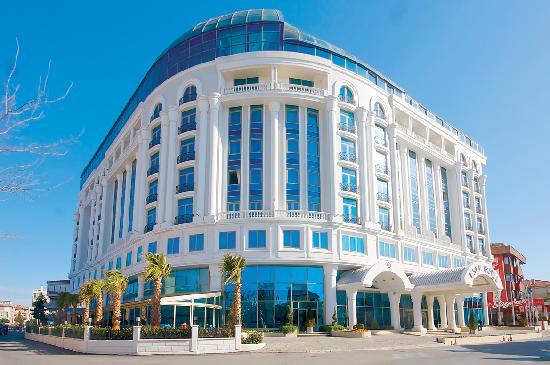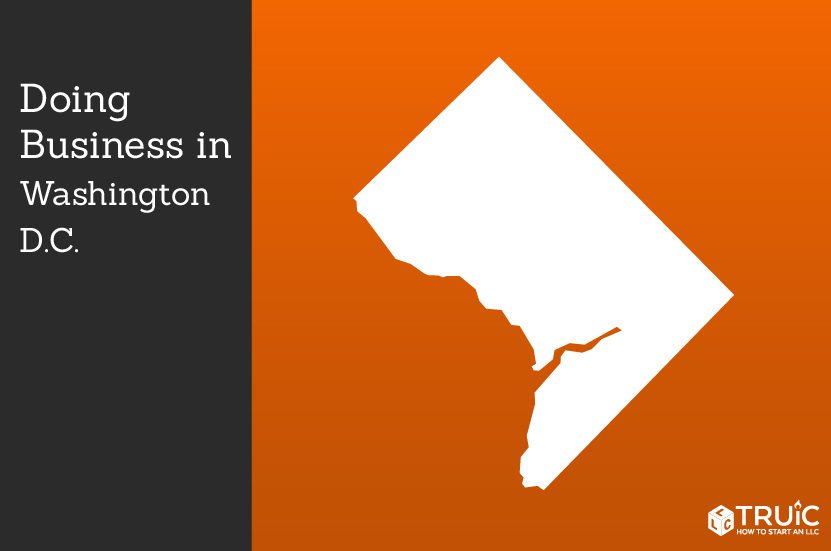To start a hotel business, you’ll need to secure financing, develop a business plan, find the right location, choose your room type and design, purchase supplies and hire staff. You’ll also need to obtain the necessary licenses and permits. To increase your chances of success, consider partnering with an experienced hotel operator.
- Research the hotel industry and find a niche market
- Consider the type of guests you want to attract and what amenities they would expect at your hotel
- Also, research the competition in your area to see what unique selling points (USPs) you can offer that will make your hotel stand out
- Write a business plan for your hotel
- This should include your budget, marketing strategy, and plans for generating revenue
- It’s also important to have realistic financial projections for your hotel so you can gauge whether or not it is feasible and profitable
- Find a suitable location for your hotel
- This is one of the most important decisions you will make as it will determine who your target market is and how easily accessible your hotel is
- If you’re catering to business travelers, then being near an airport or major highway is key
- If you’re aiming for leisure travelers, then being near tourist attractions or beaches would be ideal
- 4 Look into financing options for your hotel business
- Banks and other financial institutions are typically reluctant to lend money to start-up businesses, so you may need to look into alternative financing options such as venture capitalists or private investors
- 5 Create a marketing plan 6 Hire staff 7 Train staff 8 Open doors
How to Start a Hotel Business With No Money
You can start a hotel business with no money by following these simple steps:
1. Find a location. The first step is to find a good location for your hotel.
Look for a spot that is close to popular tourist attractions or other businesses that generate a lot of foot traffic.
2. Negotiate with the property owner. Once you have found a suitable location, the next step is to negotiate with the property owner.
You will need to convince them to let you use their space for your hotel business. It helps if you have some money saved up to offer as rent, but it is not required.
3. Get creative with financing.
If you don’t have any money saved up, you’ll need to get creative with financing your hotel business. One option is to look for investors who are willing to provide capital in exchange for equity in your company.
Cost of Starting a Hotel
Starting a hotel can be a costly endeavor. There are many factors to consider when budgeting for your new business venture. The cost of the land or property, construction costs, furnishing and equipping your hotel, marketing and advertising expenses, and hiring staff all contribute to the overall cost of starting a hotel.
The first step is to purchase land or property for your hotel. This will be the biggest expense in starting your hotel. The location of your property will play a big role in how much it costs.
If you’re looking for a prime location in a major city, you can expect to pay top dollar for your property. Construction costs will also vary depending on the size and scope of your project. A small boutique hotel will require less investment than building a large resort-style property.
Once you’ve secured your property, you’ll need to furnish and equip it with everything necessary to run a successful hotel business. This includes furniture, linens, appliances, and technology. You’ll also need to stock up on supplies like toiletries and cleaning products.
Depending on the type of hotel you’re running, you may also need special equipment like kitchen appliances or fitness equipment. All of these items will add to the overall cost of starting your hotel business.
Marketing and advertising are essential for any new business venture, but they can be especially important for hotels since there is so much competition in the industry .
You’ll need to create an eye-catching website , develop targeted marketing campaigns , and invest in online advertising . You may also want to consider traditional marketing methods like print ads or radio spots . All of these marketing efforts come at a cost , which should be factored into your overall budget for starting a hotel .
Last but not least , don’t forget about the cost of hiring staff .
How to Run a Hotel Business Successfully
If you’re thinking about running a hotel business, there are a few things you need to do to ensure success. First, you need to create a detailed business plan that outlines your goals and objectives for the business. Next, you need to find the right location for your hotel.
Once you’ve found the perfect spot, you need to build or purchase a facility that meets all of the necessary requirements for operating a hotel. Finally, you need to hire a team of qualified employees who will help you run the day-to-day operations of your business.
With these steps in mind, let’s take a more detailed look at each one:
1. Create a Detailed Business Plan
The first step in starting any successful business is creating a detailed business plan. This document should outline your goals and objectives for the hotel business, as well as how you plan on achieving them.
Your business plan should also include financial projections for the next three to five years so that you can see how profitable your venture is likely to be. Without a solid business plan in place, it will be very difficult to make your hotel successful.
2. Find the Right Location
The second step in running a successful hotel is finding the right location for your property. The location of your hotel will play a big role in its success or failure, so it’s important to choose wisely. Consider factors like foot traffic, nearby attractions, and public transportation when selecting a site for your hotel.
Factors to Consider When Starting a Hotel Business
The hotel industry is a very competitive one. If you are thinking about starting a hotel business, there are several factors that you need to take into consideration before making your final decision. Here are some of the most important factors to keep in mind:
1. Location – The location of your hotel is one of the most important factors that will determine its success or failure. You need to choose a location that is convenient for your target market and that has good transportation links.
2. Target Market – Who are you targeting with your hotel?
Are you aiming for business travelers, families, or budget-minded individuals? Knowing your target market will help you make decisions about everything from the type of rooms to offer to the amenities that you include.
3. Room Rates – Your room rates will need to be competitive with other hotels in the area.
However, if you want to attract high-end guests, you may need to charge slightly higher rates.
4. Marketing – You need to have a strong marketing strategy in place before opening your doors.
How to Run a Hotel for Dummies Pdf
Assuming you would like a blog post discussing the contents of the book, “How to Run a Hotel for Dummies”:
“How to Run a Hotel for Dummies” is an essential read for anyone considering running their own hotel. The book covers all the basics of hotel management, from choosing the right location and designing your hotel to hiring staff and marketing your business.
It also includes helpful tips on troubleshooting common problems that can arise in running a hotel. Whether you’re just starting out or have been in the business for years, “How to Run a Hotel for Dummies” is a great resource for keeping your hotel running smoothly.
Small Hotel Business Plan
A small hotel business plan is a document that outlines the goals, strategies, and financial forecasts of a small hotel business. It is typically used to secure funding from investors or banks.
The first section of a small hotel business plan should provide an overview of the business, including its history, mission statement, and any relevant background information.
The second section should detail the hotel’s proposed marketing strategy, including how it plans to attract guests and generate revenue. The third section should outline the hotel’s operations plan, including information about its rooms, staff, facilities, and services. The fourth section of the small hotel business plan should discuss the company’s financial projections for the next three to five years.
This section should include information about the company’s expected revenues and expenses, as well as its capital requirements.
A small hotel business plan should be clear, concise, and easy to understand. It should also be realistic and achievable.
All too often, small businesses fail because their plans are overly ambitious or unrealistic. By taking the time to develop a detailed but achievable small hotel business plan, you can increase your chances of success significantly.
Hotel Business Profit
The hotel business is a very competitive industry. In order to be successful, you need to be able to generate a profit. There are a number of ways to do this, and it is important to understand all of them.
One way to generate a profit in the hotel business is through room rates. Room rates are the amount of money that guests pay for their rooms. The higher the room rate, the more money the hotel will make.
However, it is important to keep in mind that if room rates are too high, guests may choose to stay elsewhere.
Another way to generate a profit in the hotel business is through food and beverage sales. Hotels typically have restaurants and bars on-site, and they make money by selling food and drinks to guests.
The prices for these items can add up quickly, so it is important to offer items that are reasonably priced but still profitable for the hotel.
Ancillary services are another way that hotels generate profits. These services can include things like laundry service, dry cleaning, parking, and Wi-Fi access.
Guests are often willing to pay extra for these types of services, so it is important to offer them at a price that is fair but still allows the hotel to make a profit.
Finally, many hotels also generate profits through events such as weddings, conferences, and conventions. These events typically require special accommodations and can be quite lucrative for hotels if they are properly managed.
Hotel Business Ideas
The hotel business is a very lucrative industry. There are many different ways to get involved in the hotel business, and there are many different ideas that can be implemented in order to make your hotel successful. Here are some hotel business ideas that you may want to consider:
1. Create a Unique Hotel Concept – One of the best ways to make your hotel stand out from the competition is to create a unique concept. This could involve anything from having a theme throughout the property, to offering unique amenities and services. Think about what would make your hotel stand out and offer something unique that guests will love.
2. Invest in Marketing – It’s important to market your hotel effectively in order to attract guests. There are many different marketing channels you can use, such as online advertising, PR, and content marketing. Make sure you’re using a variety of methods so you can reach potential guests where they’re most likely to see your message.
3. Focus on Guest Experience – The guest experience should be at the forefront of everything you do at your hotel. From the moment they book their stay until they check out, every interaction should be positive and memorable.

Credit: businessroom.ca
How Much Does It Cost to Start a Hotel Business?
When it comes to starting a hotel business, the cost can vary greatly depending on various factors. These factors can include the location of the hotel, the size of the hotel, and the type of hotel you wish to operate. Generally speaking, however, it is safe to say that you will need to have access to a significant amount of capital in order to get your hotel business up and running.
The first step in starting a hotel business is finding an appropriate location for your property. The cost of purchasing or leasing land or a building for your hotel can range widely depending on the location you choose. In addition, if you are planning on constructing a new building for your hotel, this will also add considerable costs to your overall budget.
Once you have secured a suitable location for your hotel, the next step is to begin planning and designing your property. This process will involve hiring an architect as well as other professionals such as interior designers and engineers. The cost of these services will need to be factored into your overall budget for starting a hotel business.
Once you have designed and built your hotel property, the next step is to furnish it and stock it with all the necessary amenities guests will need during their stay. Again, costs can vary widely depending on what type of furniture and fixtures you choose for your rooms as well as how many guest rooms you plan on having in total. In addition, if you plan on offering any additional services or amenities at your hotel (such as a swimming pool or fitness center), this will also require additional investment.
Once everything is in place and ready for guests, marketing becomes an important part of getting people aware of your new business venture and enticing them to book stays at your property.
How Can I Start My Own Hotel?
Assuming you would like tips on starting your own hotel business, here are a few key things to keep in mind:
1. Location is everything – choose a spot that is convenient for guests and has good access to transportation.
2. Do your research – learn about the competition and what amenities they offer so you can stand out from the crowd.
3. Create a detailed business plan – this will be essential in securing funding and ensuring your hotel is profitable.
4. Choose the right team – hire experienced staff who will provide excellent customer service.
5. Promote your property – use marketing and advertising strategies to attract guests to your hotel.
Can Small Hotels Be Profitable?
Yes, small hotels can be profitable. In fact, according to a report by the American Hotel & Lodging Association, small hotels (defined as those with less than 50 rooms) outperformed larger hotels in terms of profitability in 2017.
There are a number of reasons why small hotels can be more profitable than their larger counterparts.
For one, they often have lower operating costs due to their smaller size. They also tend to be more intimate and personal, which can result in higher guest satisfaction rates and repeat business. Additionally, small hotels typically enjoy a greater level of customer loyalty than large chain hotels.
Of course, there are also some challenges that come with running a small hotel. For example, it can be difficult to compete with the marketing budgets of big hotel brands. Nevertheless, with careful planning and execution, small hotels can absolutely be profitable businesses.
How Much Do Hotel Owners Make a Year?
Hotel owners make a great deal of money each year. In fact, they are among the highest earning businesspeople in the world. The average hotel owner makes millions of dollars annually, though there is a wide range in earnings depending on the size and location of their property.
The most successful hoteliers can make billions of dollars per year.
How to set up a small hotel business
Conclusion
If you’re considering starting a hotel business, there are a few things you should keep in mind. First, you’ll need to decide what type of hotel you want to open. There are many different types of hotels, from budget motels to luxury resorts.
Once you’ve decided on the type of hotel you want to open, you’ll need to find a location. The location of your hotel will be one of the most important factors in its success or failure. You’ll also need to obtain the necessary licenses and permits for your hotel business.
Finally, you’ll need to create a marketing plan and hire staff members who can help make your hotel a success.


